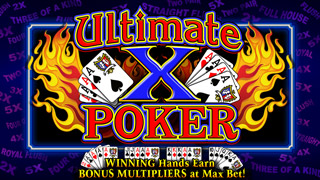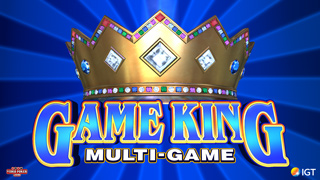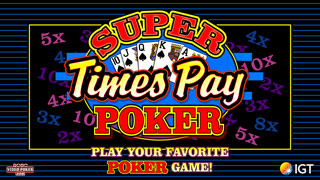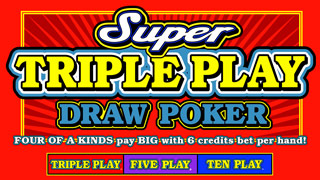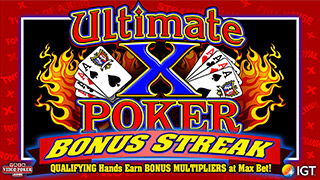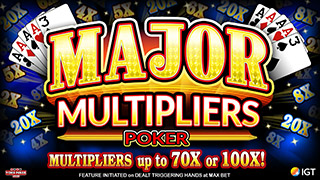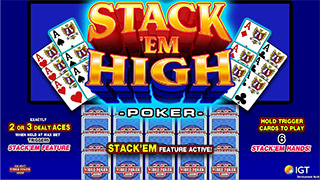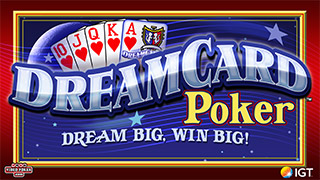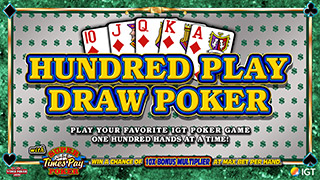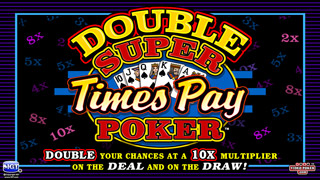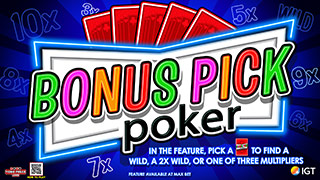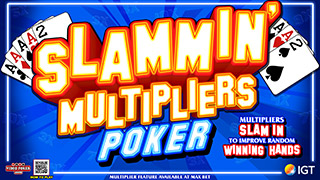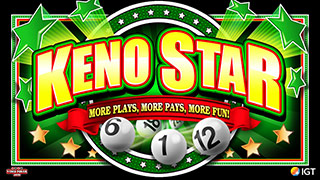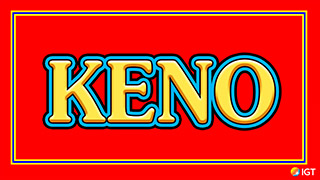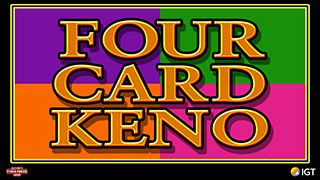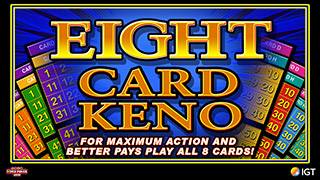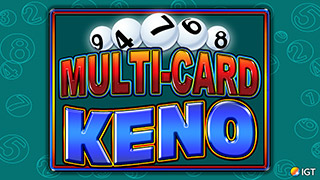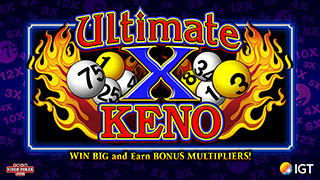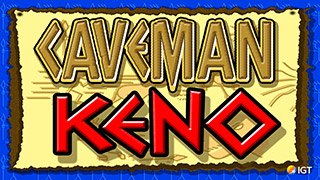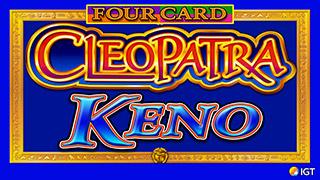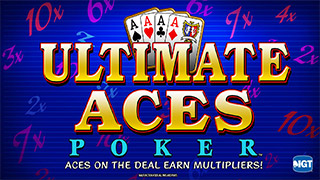do not agree with strategy test
-
risky
- Forum Newbie
- Posts: 3
- Joined: Sat Aug 29, 2009 3:21 am
do not agree with strategy test
i have been playing video poker for a long time, over 20 years and I can say I usually know what to hold. But when I take the little strategy tests they have on here, it contradicts itself. For instance on the deuces test, one of the hands will have 3 cards to a straight flush so I hold those cards. On another hand there is also the 3 cards to a straight flush and it says to hold just the deuce. They are the same hands just different cards. Why would it be ok in one hand and not the other? I have studdied these hands very carefully and they are the same!! I can't see where it makes any sense at all!! I will stick with my own strategy, thank you very much! Oh, and on one of the hands it is between 3 cards (one deuce) to a wild royal or 3 cards to a straight flush. It says to hold for the straight flush! Why in the world would you go for a straight flush instead of a royal???!!!
-
shadowman
- Video Poker Master
- Posts: 3587
- Joined: Mon Oct 23, 2006 5:42 pm
Your question demonstrates you really don't understand VP as well as you seem to think. I suspect the program is absolutely correct, however, unless you give the specific example it is hard to tell you why. Here are some potential factors:
1) In many cases the holds are very, very close. In these cases there may be penalty card situations. A penalty card (card not held) that interferes with making straights or flushes will diminish the value of the SF hold.
2) The number of possible winning results for SFs and WRFs is dependent on the size of the gaps. For example, in FPDW you would hold 67W but not 57W because the latter hold produces fewer straights and SFs.
3) While WRFs can produce a larger winning result, some of the holds provide fewer winning results. This has to be considered. Again, using FPDW, the hold AKW produces 15 WRFs, 72 straights and zero SFs. The 67W hold produces zero WRFs, 189 straights and 30 SFs. If you look at all possible results you will see that 67W returns a higher average win.
1) In many cases the holds are very, very close. In these cases there may be penalty card situations. A penalty card (card not held) that interferes with making straights or flushes will diminish the value of the SF hold.
2) The number of possible winning results for SFs and WRFs is dependent on the size of the gaps. For example, in FPDW you would hold 67W but not 57W because the latter hold produces fewer straights and SFs.
3) While WRFs can produce a larger winning result, some of the holds provide fewer winning results. This has to be considered. Again, using FPDW, the hold AKW produces 15 WRFs, 72 straights and zero SFs. The 67W hold produces zero WRFs, 189 straights and 30 SFs. If you look at all possible results you will see that 67W returns a higher average win.
-
damule
- VP Veteran
- Posts: 551
- Joined: Wed Jul 09, 2008 4:59 pm
Your question demonstrates you really don't understand VP as well as you seem to think. I suspect the program is absolutely correct, however, unless you give the specific example it is hard to tell you why. Here are some potential factors:
1) In many cases the holds are very, very close. In these cases there may be penalty card situations. A penalty card (card not held) that interferes with making straights or flushes will diminish the value of the SF hold.
2) The number of possible winning results for SFs and WRFs is dependent on the size of the gaps. For example, in FPDW you would hold 67W but not 57W because the latter hold produces fewer straights and SFs.
3) While WRFs can produce a larger winning result, some of the holds provide fewer winning results. This has to be considered. Again, using FPDW, the hold AKW produces 15 WRFs, 72 straights and zero SFs. The 67W hold produces zero WRFs, 189 straights and 30 SFs. If you look at all possible results you will see that 67W returns a higher average win.
Hiya shadow,
Good response and I was thinking the same thing was going on here. Especially with the sample test hands on this site, they are some of the most challanging hands you can have: penalty cards, straight vs straight flush holds, etc. Great assessment using FPDW as an example.
With your 3rd example however, I'm still going for the wild royal vs the straight flush. The diffference in return is so slight it's almost negligable. And to play that hand differently in FPDW vs NSUD or ugly ducks it's not worth the change of strategy for me, especially in the short term which we all really play in.
1) In many cases the holds are very, very close. In these cases there may be penalty card situations. A penalty card (card not held) that interferes with making straights or flushes will diminish the value of the SF hold.
2) The number of possible winning results for SFs and WRFs is dependent on the size of the gaps. For example, in FPDW you would hold 67W but not 57W because the latter hold produces fewer straights and SFs.
3) While WRFs can produce a larger winning result, some of the holds provide fewer winning results. This has to be considered. Again, using FPDW, the hold AKW produces 15 WRFs, 72 straights and zero SFs. The 67W hold produces zero WRFs, 189 straights and 30 SFs. If you look at all possible results you will see that 67W returns a higher average win.
Hiya shadow,
Good response and I was thinking the same thing was going on here. Especially with the sample test hands on this site, they are some of the most challanging hands you can have: penalty cards, straight vs straight flush holds, etc. Great assessment using FPDW as an example.
With your 3rd example however, I'm still going for the wild royal vs the straight flush. The diffference in return is so slight it's almost negligable. And to play that hand differently in FPDW vs NSUD or ugly ducks it's not worth the change of strategy for me, especially in the short term which we all really play in.
-
risky
- Forum Newbie
- Posts: 3
- Joined: Sat Aug 29, 2009 3:21 am
thanks for your response. I already understand that there are more ways to get a straight flush than a royal. but we all know that the longer you play a poker machine or any machine for that matter, that the chances of coming out ahead are slim. So I do understand the odds, but if you are going to have some fun and walk away with something you should go for the higher paying hand in most cases. You would never get anything good if you always go for the puny hand, unless it was dealt to you. Of course you wouldn't go for a 2 or 3 card royal if you have 4 cards to a straight flush. But the game is all about fun, bigger money and taking chances that's why it's called gambling. Right?
Thank you Mule, you said exactly what I mean. I'm not changing my strategy either. And I know I am a good player, or else how would I have over 50 real royals under my belt. I lost count after that! Most people I talk to say they've never got one and they've played a very long time as I have.
Of course you have to change your strategy for different poker games, I know that too.
Thank you Mule, you said exactly what I mean. I'm not changing my strategy either. And I know I am a good player, or else how would I have over 50 real royals under my belt. I lost count after that! Most people I talk to say they've never got one and they've played a very long time as I have.
Of course you have to change your strategy for different poker games, I know that too.
-
shadowman
- Video Poker Master
- Posts: 3587
- Joined: Mon Oct 23, 2006 5:42 pm
but we all know that the longer you play a poker machine or any machine for that matter, that the chances of coming out ahead are slim. So I do understand the odds, but if you are going to have some fun and walk away with something you should go for the higher paying hand in most cases. You would never get anything good if you always go for the puny hand, unless it was dealt to you.
While I totally disagree with most of what you said, I think I need to point out that many of those puny hands allow you hold onto a bankroll longer. The longer you play the better chance you have getting a big hand. It pays to consider the big picture, not just each individual hand
But, it's your money and you have every right to use whatever strategy you want.
While I totally disagree with most of what you said, I think I need to point out that many of those puny hands allow you hold onto a bankroll longer. The longer you play the better chance you have getting a big hand. It pays to consider the big picture, not just each individual hand
But, it's your money and you have every right to use whatever strategy you want.
-
damule
- VP Veteran
- Posts: 551
- Joined: Wed Jul 09, 2008 4:59 pm
[QUOTE=shadowman
While I totally disagree with most of what you said, I think I need to point out that many of those puny hands allow you hold onto a bankroll longer. The longer you play the better chance you have getting a big hand. It pays to consider the big picture, not just each individual hand
But, it's your money and you have every right to use whatever strategy you want.[QUOTE]
This is very true, especially when the difference in expected return is quite high. We see this in games like double double bonus where some players will hold a low pair (twos, threes, or fours) over two pair or 4 to a flush. However, I feel the effect of this is quite small where the expected return is similar such as the earlier example holding 3 to the wrf vs 3 to the straight flush in deuces wild.
While I totally disagree with most of what you said, I think I need to point out that many of those puny hands allow you hold onto a bankroll longer. The longer you play the better chance you have getting a big hand. It pays to consider the big picture, not just each individual hand
But, it's your money and you have every right to use whatever strategy you want.[QUOTE]
This is very true, especially when the difference in expected return is quite high. We see this in games like double double bonus where some players will hold a low pair (twos, threes, or fours) over two pair or 4 to a flush. However, I feel the effect of this is quite small where the expected return is similar such as the earlier example holding 3 to the wrf vs 3 to the straight flush in deuces wild.
-
Lucky Larry
- Video Poker Master
- Posts: 2693
- Joined: Sat Dec 13, 2008 7:35 pm
Risky,
Welcome to the forum.
While I totally disagree with most of what you said, I think I need to point out that many of those puny hands allow you hold onto a bankroll longer. The longer you play the better chance you have getting a big hand. It pays to consider the big picture, not just each individual hand
But, it's your money and you have every right to use whatever strategy you want.[QUOTE]
This is very true, especially when the difference in expected return is quite high. We see this in games like double double bonus where some players will hold a low pair (twos, threes, or fours) over two pair or 4 to a flush. However, I feel the effect of this is quite small where the expected return is similar such as the earlier example holding 3 to the wrf vs 3 to the straight flush in deuces wild.
damule,
IMO, you are right on. Each person can make their own decision on strategy-its their money.
We usually play in La. and are forced to play lower return games. To us this means it is even more imperative that we use recommended strategy to reduce the house edge. We've hit almost 70 25¢+ RF and several hundred small denomination multi-hand RF in about 4 years. With limited resources, a fixed income, it behooves us to play to stay in the game and wait for the big hits.
Welcome to the forum.
While I totally disagree with most of what you said, I think I need to point out that many of those puny hands allow you hold onto a bankroll longer. The longer you play the better chance you have getting a big hand. It pays to consider the big picture, not just each individual hand
But, it's your money and you have every right to use whatever strategy you want.[QUOTE]
This is very true, especially when the difference in expected return is quite high. We see this in games like double double bonus where some players will hold a low pair (twos, threes, or fours) over two pair or 4 to a flush. However, I feel the effect of this is quite small where the expected return is similar such as the earlier example holding 3 to the wrf vs 3 to the straight flush in deuces wild.
damule,
IMO, you are right on. Each person can make their own decision on strategy-its their money.
We usually play in La. and are forced to play lower return games. To us this means it is even more imperative that we use recommended strategy to reduce the house edge. We've hit almost 70 25¢+ RF and several hundred small denomination multi-hand RF in about 4 years. With limited resources, a fixed income, it behooves us to play to stay in the game and wait for the big hits.



